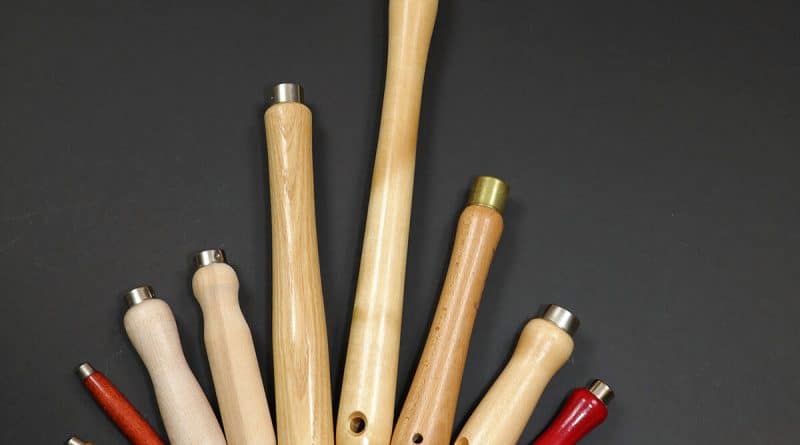Woodturning – A Wooden Handle
Wood handles are used in tools due to their ability to provide a good grip when holding the tool. Unlike many other types of handles; wooded handles are easy to grip do not transfer heat and are not electrical conductors. Therefore, making a good handle from a piece of wood probably means nothing to society, but is environmentally safe and when no longer serviceable easily disposed of.
To turn a wooden handle, one needs to ensure that he or she has all the required wood-turning tools. This helps them make the handles with a lot of ease and efficiency. Key requirements in the handle-making process include a Wood Lathe, Roughing Gouge, Spindle Gouge, and Caliper. Material requirements are; a 2″ square hardwood, with a length of about 12 to 20″, a ferrule 1″ long which can be made from 1 to 1 ¼” diameter copper, brass, or stainless pipe.
To start your handle-turning project, you need to locate the center of each end of the wood square so it can be mounted between the spur drive and the live center. Use an Awl to mark the centers; this will help you squarely mount the wood. Be sure to leave at least 1″ of extra length at each end. The tendons can be sawn off after the handle is finished. You are now ready to start turning the handle, for your safety and health, ensure that you have your protective gear on, most importantly, the face mask.
Switch on the wood lathe and start making the wood round using the roughing gouge. The ferrule keeps the handle from splitting under use so the ferrule must fit tight. Use the calipers to measure the diameter (inside) of the ferrule and make the end to the handle the same diameter. At some point, you will have to drill a hole in the handle in which to insert the tang of the tool.
This should also be a tight fit. Use epoxy to glue the tang into the handle and drive the ferrule over the end of the handle securing the metal insert. If the handle is inserted into a tool such as a hammer or mallet the fit should be a tight fit but not tight enough to split the wood.
With the handle round and the point of attachment completed finish the remaining section with any design you want. Shape the handle to fit your hand and use small raised shapes above and below where you would hold the handle; this will aid your grip on the handle. After the handle is shaped and sanded, apply a coat of mineral oil. Mineral oil with protect the wood and allow for a good grip, varnish can be slippery and will become sticky with hard use.




